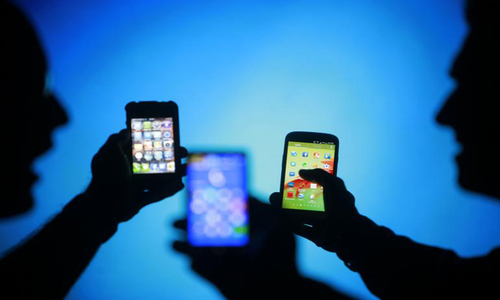“The first thing a refugee asks for upon arrival at a camp is not water or food but the wi-fi password.” This is what Kann Terzioglou, the CEO of Turkish mobile phone operator Turkcell said at the World Economic Forum in Davos, adding that a smartphone has become a basic humanitarian need because it allows displaced people to connect with the loved ones they’ve been separated from.
While of course communication services are not as important as food and water for human survival, today, everyone needs equal access to digital services and smart technologies to fully participate and keep up with the world that is all set to enter into a new era of globalisation.
The telecommunications industry is at the foundation of this digitalisation, shaping the way people interact and conduct business; navigating the fourth industrial revolution forward and setting up an era in which advances in multiple technological areas, specifically when it comes to emerging tech such as 5G, Big Data, Internet of Things, edge computing, Artificial Intelligence (AI), and machine learning are congregating to fundamentally change the world.
However, in order to realise this future, the industry must compete with market disruptors and new entrants by adopting new business models and launching innovative intelligent services.
With large-scale projects on the cards, our economy would soon be no longer alien to cutting-edge technologies including blockchain, artificial intelligence, machine learning and the likes
Telecommunications companies play a vital role in connecting people and improving the lives of millions. In recent decades, the telecommunications industry has undergone tremendous technological development and the capacity and coverage of mobility, broadband, and internet services have continued to expand. The International Telecommunication Union (ITU) estimates that by the end of 2019, there were more than 4 billion internet users, of which more than 3bn were in developing countries.
During the Covid-19 crisis, the importance of telecommunications services has become particularly evident. Telecom operators have realised remote work and learning and helped people all over the world keep in touch. They have strengthened their support to the national healthcare system, state and local governments and corporate customers to keep important processes going. The increasing trend of videoconferencing, telemedicine, e-learning and online shopping are all among the many proofs of the growing importance of telecommunications in the everyday life of an average user.
The evolution of the network has created opportunities for telecommunications companies to lead the way, enabling other industries to reshape their business processes. Telecommunications products consisting of mere voice, messaging, and data services are eroding. Competition from IT service companies is forcing traditional telcos to embrace new technologies as digital service providers and try innovative business concepts to increase relevance to customers and maintain healthy profit margins.
In this new era of digitalisation, the combination of emerging technologies and unabating attention to customers will pave the way. The digital transformation of the telecommunications industry involves instilling the most advanced technological solutions to promote business development, gain a competitive advantage in the market and ensure an expanded and enhanced customer experience.
Thus, the winning telecommunications company will have to provide compelling services and a unique user experience, while protecting the privacy and ensuring safety. They will have to attract customers through personalised end-to-end experiences at each touchpoint, while also continuously improving their offerings based on the feedback. The telecommunication companies that can best collect, protect, and respond to data from customers will score high at customer preference.
But to thrive in the economy, successful telecommunication companies must go beyond basic customer experience. They need to listen to feedback about their services and product portfolio, employee satisfaction, and even brand strategy and respond to it accordingly in order to attain excellence. However, to put these strategic priorities into action, telcos need to pursue transformative business models to offer a more sophisticated experience to both their employees and customers.
Pakistan has also made significant strides in the field of telecommunications which has emerged as a prominent contributor to the country’s economy. To further facilitate its growth, Pakistan’s telecom sector has been given industrial status by the government for 2021-22.
Recently, the Federal Minister for Information Technology and Telecommunication has also announced launching 5G service in the country by December 2022 and hinted at a collaboration with technological giants. With such large-scale projects on the cards, our economy would soon be no longer alien to cutting-edge technologies including blockchain, artificial intelligence, machine learning and the likes.
The occurrence of the pandemic has played an important role in promoting the development of digitalisation in the industry. From education and health to commerce and finance, telecommunication-led digitisation has revolutionised our everyday life, bringing us to the cusp of a world where access to almost all our needs is just a tap away.
Therefore, most companies are transforming or have adopted a large number of technologies in their operations. Pakistani telcos are also gearing up to streamline and update their operations with the help of agile digital tools so that they can deliver a quality consumer experience.
However, due to the competitive environment between network operators, the main focus is to provide maximum benefits for general users in terms of access to modern services and better service quality. In order to win in this experience economy, intelligent companies must learn to link experience with operations. They must use both experience and operational data to guide their business decisions and gather insights from customers, employees, products, and brands at every touchpoint.
One of the main goals of telecommunications is survival and development, and digital transformation will help them achieve the same goals. Therefore, technology adoption must be aligned with sustainability to ensure that the industry survives these turbulent times. In general, the telecommunications ecosystem is set to undergo many changes. Digital transformation is one of them, and it will play an important role in shaping the future of the telecommunications industry and enabling it to make progress in the future. n
The writer is the managing director of SAP in Pakistan
Published in Dawn, The Business and Finance Weekly, September 13th, 2021















































